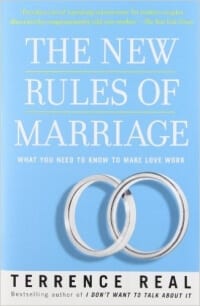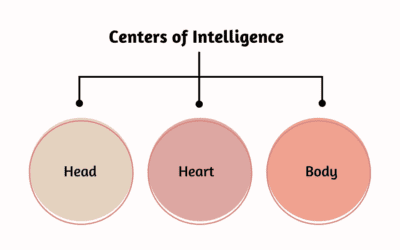HOW TO HEAL THE BROKENNESS IN YOUR RELATIONSHIP
 I have been reading The New Rules Of Marriage by Terrence Real.
I have been reading The New Rules Of Marriage by Terrence Real.
Here is some of his great advice on how to heal in your relationship…
Vicious Cycles
Most couples find themselves stuck in replays of relationships from their childhood.
As children, we learn from the dynamics we live in.
In our adult relationships, we play out what we learned.
Each of us adopts stances in our relationships – losing strategies – without questioning them.
To us, they are normal because they were the “norms” we grew up in.
The more he X’s, the more she Y’s. The more she Y’s, the more he X’s.
You mean retaliation is not normal? says the child of a rager.
You say that everyone doesn’t withdraw when they’re unhappy with their spouse says the child of two closed-down parents.
The vicious cycles, we experienced as children become our models of “how one does it” and becomes our unquestioned internalized templates for relationships.
Are We Doomed To Repeat These Patterns?
Even though we search for the familiar cycles of our childhood, we also have a strong desire to change them.
We unconsciously pick partners with whom we can re-create whatever it was that was dysfunctional in our childhood, so we can heal it.
Typically we are drawn to partners whose:
- Character is similar to one or both of our parents re-creating our most familiar and unresolved childhood dramas.
- Character is dissimilar enough from our parents, that with this person, the old drama carries within it the potential for a new and healthier outcome.
How We Think We Will Heal
We each want from each other, what we deserved and did not get in our childhood.
Many people unconsciously think they will be healed, if they wrestle from their partners the love and care they crave.
But that strategy is doomed for failure.
Usually we have no better luck with our partners than we had in the past with our parents, because healing does not come from replaying old dramas and finally winning.
Healing comes when you learn to give yourself what was never given to you.
That means you give up trying to get your partner to change and focus on changing yourself instead.
Eventually you realize you do not need your partner’s validation, because you’ve learned to feel worthwhile within yourself.
You use your relationship as a place where you can work on and heal yourself.
What Is Relationship Practice?
 A good relationship isn’t something you have, but something you do by asking the question, “What can I do to help make this better?”
A good relationship isn’t something you have, but something you do by asking the question, “What can I do to help make this better?”
And it’s not something you do once or twice in a big way, but rather something you keep doing day by day, throughout your entire life.
When your partner says something…in that instant, you can chose your response to be thoughtful or thoughtless.
It can be the automatic response you learned in childhood, that fuels your part of the vicious cycle or a conscious response from a new level of awareness.
What Fuels the Cycle is Our Core Negative Images
Your core negative image or CNI of your partner is what you feel most hopeless and frightened about.
You say to yourself, “Oh my God, what if he/she really is….incompetent, selfish, cold-hearted, hypocritical, rude, controlling…
 It is who your partner becomes to you in those most difficult, irrational, least-loving moments.
It is who your partner becomes to you in those most difficult, irrational, least-loving moments.
For instance, Sara thinks Steve is a hypocritical tyrant who never listens to her and never treats her with respect. Steve thinks Sara is insatiable, nothing he does is ever good enough for her.
Every time Steve says Sara is unappreciative, Sara feels dismissed and not listened to.
And each of Sara’s complaints about feeling unheard reinforces Steve’s conviction that nothing he does is ever good enough for Sara.
Carried Over From Childhood
We all wish we could get from our partners something critical we didn’t get growing up.
 For instance, Sara’s father ruled her family with an iron grip. Since her mother was quiet and passive, she was the one who had knock down fights with her father. Sara desperately longed for Steve to listen to her as her father never did.
For instance, Sara’s father ruled her family with an iron grip. Since her mother was quiet and passive, she was the one who had knock down fights with her father. Sara desperately longed for Steve to listen to her as her father never did.
Steve’s mother loved and nurtured him, but in his father’s eyes nothing was good enough. Steve desperately wanted Sara’s approval of him as his father never could give him.
Both married their fathers. Each sees the other with the same anger and sense of hopelessness they felt toward their father.
Unconsciously we choose a mate similar to the parent we grew up with to a re-creation that old struggle – to be heard, to be appreciated.
How Can You Use Each Other’s CNI For Good?
There is an old saying: To find your unique strength, look deep into the heart of your worst enemy.
Learning to work with each other’s CNI’s can be the single most transformative aspect of your relationship.
Need More Clarity?
Are you and your partner struggling in this vicious cycle? I’d love to talk to you about it.
Click the graphic below to set up a complimentary clarity session!






0 Comments